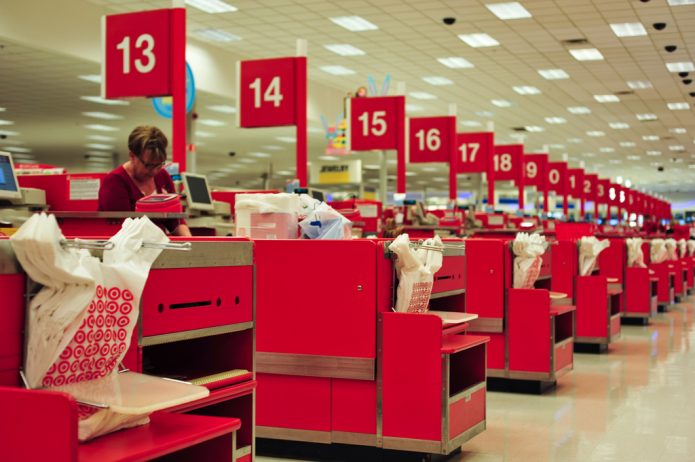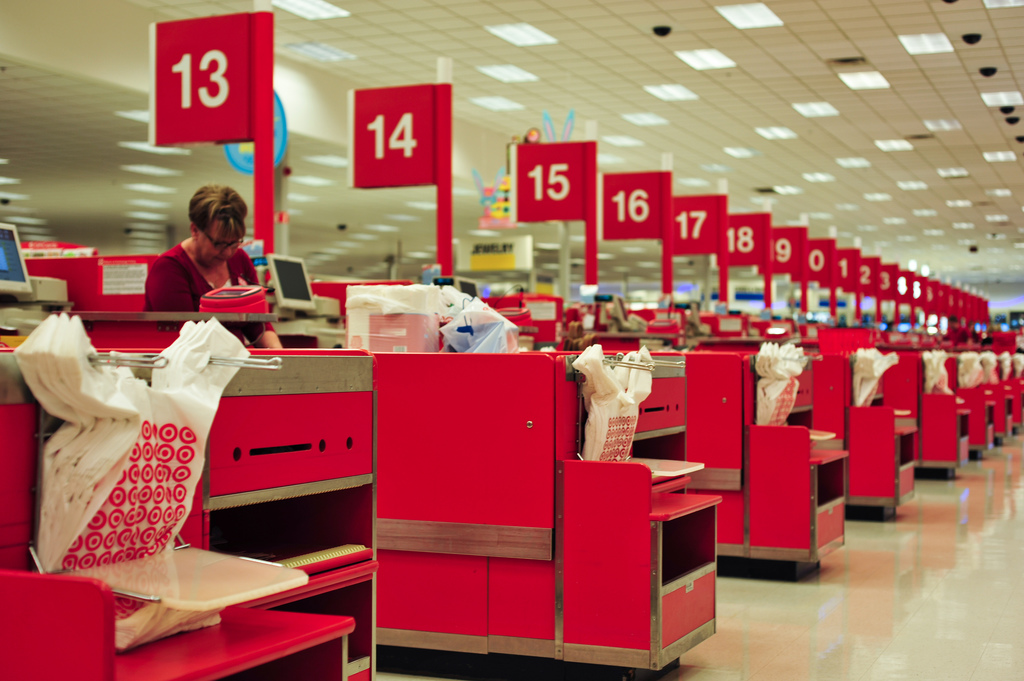
(Photo: Nate Grigg/Flickr)
When you do your holiday shopping this year, keep this in mind: the cashier ringing up your purchase likely worked part time at some point in their career. There’s a chance they’re borrowing money or using credit cards to pay their bills. Their income and schedules can be volatile. And it’s incredibly difficult for them to move up the career chain.
Thanks to the Fair Workweek Initiative, a project anchored at the Center for Popular Democracy, we now have a better picture of the lives of retail workers around the country. The group published their survey, Job Quality and Economic Opportunity in Retail, earlier this November.
Inequality.org spoke with Carrie Gleason, the director of the Fair Workweek Initiative, to talk more about the survey. “There’s this moment of disruption that’s happening right now in retail, and we wanted to get insights into where we are right now, and also understand how people are imagining the future,” Gleason told Inequality.org.
Gleason’s been organizing retail workers since 2005, and has seen a lot of trends unfold over the past decade. One of the biggest waves she noticed? The move towards a part-time workforce. “I saw this massive shift to a low road,” Gleason said. “I saw the chaos that unfolded in a lot of people’s lives who I was working very closely with.”
The survey confirmed that part-time workers are far more vulnerable to erratic incomes and hours, and see fewer opportunities for growth. But Gleason also noted that 60 percent of the full-time workers they interviewed had worked part-time jobs in the past — a statistic she found troubling.
“What we’ve seen in retail is that actually there’s a lower rung. And it starts now with a part-time job. And it’s not just, ok I’m going to work part time and work my way up to a full-time job. It’s like an obstacle course to get to a full-time job. So you have to be available all the time to really just get a few hours a week.” For workers with families, that means kids often have to adapt to ever-changing workweeks, which worries Gleason. “It’s super important to set up healthy, stable routines, but for people who are working in the retail economy, it’s impossible.”
The survey also painted a picture of financial insecurity among workers. Nearly half of their survey respondents said they borrowed money from family and friends in the past year. Meanwhile, some companies are profiting off the financial instability of the retail workforce: 39 percent of retail workers say they use a credit card to pay off bills, 25 percent purchased a money order, and 12 percent used payday loans. “The financialization of the poverty of people working in retail is a huge industry,” Gleason says.
The survey makes it clear that the finance industry is playing an outsized role in the lives of retail workers. That parallels with the stake it holds in the industry as a whole. The backdrop to this study has been the often-mentioned “retail apocalypse.” This mantra has become a regular fixture in the news cycle: retail stores are closing. Online shopping has taken over. Millennials would rather buy experiences than things. But Gleason says the truth is more complicated.
“If we look at the reason for the most recent wave of store closings, I would argue that private equity has more to do with 100,000 people losing their jobs than Amazon,” Gleason says. “People lost their jobs because Wall Street got greedy and put too much debt on these companies.”
Recent reporting supports Gleason’s claim. Private equity firms have bought up retail companies and loaded them up with billions in debt in risky business schemes, as a recent Bloomberg feature shows. The biggest payers of the burden, they anticipate, will be the low-income workers employed by the chains. Meanwhile, the mismanagers of America’s retail crisis will likely come out ahead.
But despite the numbers, it takes work to change the narrative. “That story hasn’t been told, because it’s invisible,” Gleason says. You just see Toys ‘R’ Us closing. You don’t see the myriad of private equity firms that set them up to fail.”
But workers who bear the consequences know what’s happening. “I think there’s a ton of growing awareness about how things actually work. It’s not a shock to someone who works at Toys ‘R’ Us that bankers might be at fault for why they lost their job.”
